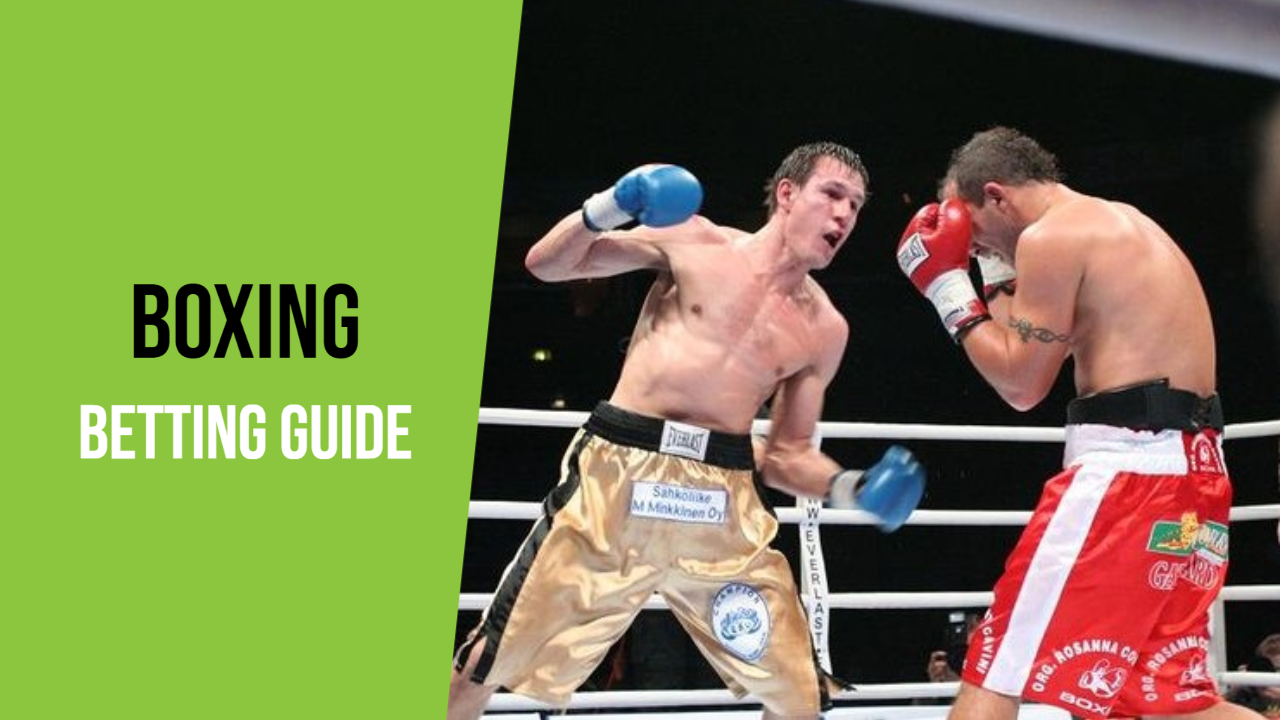
This boxing betting guide aims to provide you with valuable insights into the sport, highlighting the key factors that influence fight outcomes. Moreover, you can explore the best websites for boxing betting and discover reliable resources for accessing fighter profiles, records, and analytics. With this knowledge, you’ll be equipped to make well-informed decisions when placing boxing bets.
About Boxing Betting
Boxing betting refers to wagering on the outcome of a boxing match. There are a variety of betting markets available for boxing including round betting, method of victory, total rounds, number of punches thrown/landed by each fighter, and number of knockdowns.
Boxing has produced many high-profile events and matches over the years, generating enormous media attention and worldwide viewership. Some boxing fights, such as The Rumble In The Jungle in 1974, have gained legendary status and are still being discussed decades after the event took place.
The sport’s wide appeal has been boosted by its array of iconic figures, from Muhammad Ali to Mike Tyson, to Tyson Fury. These larger-than-life characters have become cultural legends, and their impact extends beyond the sport itself.
Why Bet On Boxing?
-
High-profile Events
Boxing is home to some of the most high-profile sporting events in the world. These events attract a lot of attention and media coverage, which can make them an attractive option for sports betting.
-
Excitement and Drama
Boxing is a sport that can be very exciting and dramatic. With two fighters in the ring, each trying to land the decisive punch, there is always a sense of tension and anticipation in the air. This is part of what makes it so appealing to bet on.
-
Strategic and Tactical
Boxing is a highly strategic and tactical sport, with many different factors that can influence the outcome of a fight. This makes it an interesting sport to analyse and bet on.
Popular Boxing Competitions
Major boxing competitions are organised by four leading organisations within the sport:
- World Boxing Association (WBA): The WBA is one of the oldest professional boxing organisations, and it was established in 1921 in Panama City, Panama. The WBA sanctions world championship matches, and it has a ranking system that is used to determine the best fighters in various weight divisions. It one of the four major organizations in the sport of boxing.
- World Boxing Council (WBC): The WBC was established in 1963 and is headquartered in Mexico City, Mexico. Like the WBA, it is one of the four major organisations in the sport of boxing and it sanctions world championship matches. The WBC has a strict set of rules and regulations, and it is known for its focus on fighter safety.
- International Boxing Federation (IBF): The IBF was established in 1983, headquartered in Springfield, New Jersey, USA. It is another of the four major organisations in the sport of boxing and it sanctions world championship matches. The IBF has a reputation for being objective and fair.
- World Boxing Organization (WBO): The WBO was established in 1988 and is headquartered in San Juan, Puerto Rico. It is the fourth major organisation in the sport of boxing and it sanctions world championship matches. The WBO is known for its focus on transparency and fairness in its rankings and championship matches.
These major boxing organisations attract the best fighters from all over the world. Whether it’s for a world championship title, a prestigious magazine title, or just the prestige and recognition that comes with winning a big match, their competitions are a huge part of what makes the sport of boxing so popular and beloved.
Best Bookmakers for Boxing Betting
I recommend the following bookmakers for placing boxing bets:
#ad. 18+, GambleAware.org, T&Cs Apply
#ad. 18+, GambleAware.org, T&Cs Apply
#ad. 18+, GambleAware.org, T&Cs Apply
#ad. 18+, GambleAware.org, T&Cs Apply
#ad. 18+, GambleAware.org, T&Cs Apply
#ad. 18+, GambleAware.org, T&Cs Apply
#ad. 18+, GambleAware.org, T&Cs Apply
#ad. 18+, GambleAware.org, T&Cs Apply
Considerations for Boxing Betting
Boxing requires a combination of physical and mental skills, including strength, speed, agility, endurance, hand-eye coordination, and strategy. Boxers must be able to analyse their opponent’s strengths and weaknesses, come up with a game plan, and execute that plan in the ring.
Additionally, boxing has a unique scoring system, which can sometimes be difficult to understand for those who are new to the sport. Points are awarded based on the number of punches landed, the power of the punches, and the number of knockdowns, among other factors. This scoring system can sometimes lead to disputes over the outcome of a fight, making the sport more complex and difficult to predict.
Physical Attributes
Physical attributes can play a major role in boxing and can impact a fighter’s performance in the ring in several ways:
- Height and reach: A fighter’s height and reach can affect their ability to defend against punches and land shots of their own. Taller fighters generally have a longer reach, which can give them an advantage in keeping their opponents at a distance.
- Weight: A fighter’s weight can impact their power and endurance, as well as their ability to absorb punches. Heavier fighters are generally seen as having more power, but may also tire more quickly than lighter fighters.
- Hand speed: A fighter’s hand speed can impact their ability to land punches and avoid getting hit. Faster fighters can often catch their opponents off guard and land shots that their opponents are unable to defend against.
- Punching power: A fighter’s punching power can have a significant impact on the outcome of a fight, as a well-placed punch can stun an opponent and turn the tide of the fight.
Technique
Technique is a crucial factor in boxing and can impact a fighter’s performance in several ways:
- Footwork: Good footwork can help a fighter maintain balance, avoid punches, and create openings for their own shots. A fighter with good footwork will be able to maneuver around the ring and stay in position to strike.
- Punching: A fighter’s punching technique can impact the power, accuracy, and speed of their shots. A fighter with good technique will be able to generate more power with each punch and land shots more consistently.
- Defence: Good defensive technique can help a fighter avoid getting hit and protect themselves from injury. This includes using proper head movement, slipping, ducking, and blocking punches.
- Combinations: The ability to throw multiple punches in succession, or combinations, is an important aspect of technique in boxing. Good combinations can help a fighter overwhelm their opponent and land multiple shots in quick succession.
- Strategy: Good technique also includes the ability to implement a strategy in the ring. A fighter with good technique will understand how to use their physical attributes, such as their reach or power, to their advantage, as well as how to counter their opponent’s strengths.
Conditioning
Conditioning is a critical factor in boxing, as it can greatly impact a fighter’s performance in several ways:
- Endurance: Boxing matches can be gruelling and last several rounds, so a fighter’s endurance is important. Good conditioning allows a fighter to maintain their pace, power, and accuracy throughout the fight.
- Recovery: Good conditioning can also help a fighter recover more quickly between rounds and prevent fatigue.
- Speed and Agility: A fighter’s speed and agility are also important components of their overall conditioning. Good conditioning can help a fighter move quickly and effectively in the ring and react quickly to their opponent’s movements.
- Resilience: Boxing is a physically demanding sport, and fighters are often subjected to hard punches and other blows. Good conditioning can help a fighter withstand these blows and minimize the risk of injury.
- Mental Toughness: Good conditioning can also have a positive impact on a fighter’s mental toughness. By training their bodies to endure tough physical demands, fighters can develop the mental toughness needed to push through difficult situations in the ring.
Experience
Here are several ways that experience can positively or negatively affect a boxer:
Positive impacts:
- Technical skills: With experience, a boxer can refine and perfect their technique, allowing them to effectively use their punches and defense strategies.
- Ring awareness: Experienced boxers have a heightened sense of awareness in the ring, allowing them to anticipate their opponent’s moves and react quickly.
- Mental toughness: Over time, a boxer develops mental toughness, which enables them to better handle the pressure and demands of a fight.
- Fight strategy: With experience, a boxer can develop a sophisticated fight strategy that takes into account their strengths and weaknesses, as well as those of their opponent.
Negative impacts:
- Physical decline: As a boxer ages, their physical abilities may decline, making it more difficult for them to perform at their best in the ring.
- Decreased reaction time: Over time, a boxer’s reaction time can slow down, making it more difficult for them to defend themselves or respond to their opponent’s attacks.
- Decreased endurance: With age, a boxer’s endurance may decline, making it harder for them to maintain their energy levels throughout a fight.
- Mental scars: Experiencing losses or serious injuries in the ring can take a psychological toll on a boxer, causing them to lose confidence in their abilities.
Mentality
The mentality of a boxer can have a significant impact on their performance in the ring. Consider the following:
- Confidence: A boxer’s level of confidence can greatly impact their performance, as they are more likely to execute their techniques effectively and take calculated risks when they feel confident in their abilities.
- Mental toughness: Mental toughness is a crucial component of success in boxing, as it enables a boxer to stay focused and motivated in the face of adversity, such as a tough opponent or a challenging fight.
- Focus: The ability to maintain focus is essential in boxing, as it allows a boxer to stay on track with their strategy and avoid getting distracted by external factors.
- Resilience: Resilience is also important in boxing, as it enables a boxer to bounce back from setbacks and continue to strive for success, even in the face of defeat.
- Motivation: A high level of motivation can drive a boxer to put in the hard work and effort required to succeed in the ring, while a lack of motivation can hinder their progress and performance.
Strategy
Strategy is a crucial component of success in boxing, as it allows a boxer to make the most of their skills and abilities and overcome their opponent. Here are some ways that strategy can impact a boxer’s performance in the ring:
- Punch selection: The punches a boxer throws greatly impact the outcome of a fight. A well-planned punch selection strategy can help a boxer effectively use their strengths and exploit their opponent’s weaknesses.
- Footwork: Footwork allows a boxer to control the distance between themselves and their opponent, dictate the pace of the fight, and avoid getting hit.
- Defense: A strong defense is crucial in boxing, and a well-planned defense strategy can help a boxer avoid getting hit and maintain their energy throughout the fight.
- Adaptability: The ability to adapt to an opponent’s style and make strategic adjustments during a fight can greatly impact a boxer’s performance, as it enables them to overcome challenges and take advantage of opportunities as they arise.
It’s important for boxers to continuously evaluate and adjust their strategy in order to stay ahead of their opponent.
Judges' Decisions
Judges’ decisions can have a significant impact on boxing as they determine the winner of a fight.
Judges’ decisions are based on a scoring system that takes into account factors such as effective punches, ring generalship, and defence. These decisions can lead to:
- Loss of credibility: The credibility of the sport itself can also be impacted by judges’ decisions, especially if there are recurring issues.
- Disputes: The subjective nature of scoring in boxing means that judges’ decisions can lead to controversy and debates among fighters, fans and experts.
- Career Impacts: Judges’ decisions can have a major impact on a boxer’s trajectory, as a win/loss on their record can affect their ranking and opportunities for future fights.
Boxing Betting Markets
Here are some of the most popular boxing betting markets:
Winner: A simple wager on which boxer will win the fight.
Round betting: Round betting involves betting on the round in which a fight will end, or if the fight will go the distance.
Method of victory: This betting market involves betting on the manner in which a fighter will win the fight, such as by knockout, technical knockout, decision, or disqualification.
Total rounds: Total rounds betting involves betting on the total number of rounds that a fight will last.
Specials (props): Special bets can be placed on specific events within a boxing match, such as the number of knockdowns, the number of punches thrown, or the length of the fight.
Best Sites for Boxing Stats
The following websites provide free boxing statistics:
You can learn more about these sites here: Best Sites For Free Boxing Statistics
Boxing FAQ
Boxing is a combat sport in which two individuals, wearing gloves, punch each other with their fists in a ring.
The goal is to either knock out the opponent or score points with the judges by landing effective punches and avoiding the opponent’s punches.
Boxing matches are scored by three judges, who use a 10-point must system. Under this system, each round is scored based on the effective punches thrown by each fighter, with the winner of the round receiving 10 points and the loser receiving 9 points or less. The judges’ scores are combined to determine the winner of the fight.
Boxing has several weight classes, ranging from flyweight (up to 112 pounds) to heavyweight (over 200 pounds). The goal is to match boxers of similar size and weight to ensure a fair and competitive fight.
Some of the most well-known weight classes include featherweight, welterweight, middleweight, and heavyweight.
A TKO (Technical Knockout) in boxing refers to a fight that is stopped by the referee before the end of the scheduled rounds due to one fighter being unable to continue. This can happen for several reasons, including a fighter being knocked down and unable to get back up, a fighter suffering an injury, or a fighter being deemed too tired to continue. A TKO is considered a win for the fighter who is still able to continue, and is recorded as such on their record.
It’s worth noting that there are different types of TKOs, including a TKO due to a doctor’s stoppage, a TKO due to an injury, or a TKO due to a corner stoppage.
- Betfred Review | Examining The Bookmaker’s Overall Performance [2025] - July 3, 2025
- 32Red Sport Review | The Casino Giant’s Sports Offering [2025] - July 3, 2025
- Malaysian Odds | What Are Malay Odds? How Do They Work? - July 3, 2025








